Newsletter subscription
The UniClaD Project Newsletter keeps Consortium members , stakeholders and community members up-to-date with project activities progress , upcoming events, conferences, news from Agri-food cluster and recent publications. It is published every 6 months and posted to members in Spring and Winter. To receive our Newsletter Subscribe here LINK
From challenges to Success: UniClaD Project‘s achievements uncovered
UniClaD is an Erasmus+ Capacity Building project, coordinated by Kauno kolegija Higher Education Institution (HEI), bringing together more than 20 partners from Europe and Eastern Partnership countries to achieve common goals. The project is worth almost 1 million Euros.
The final events of the project “Enhancing Capacity Of Universities To Initiate And To Participate In Clusters Development On Innovation And Sustainability Principles” (UniClaD) (Nr. 609944-EPP-1-2019-1-LT-EPPKA2-CBHE-JP)-EPPKA2-CBHE-JP) took place from 30 September to 4 October in Baku, Azerbaijan, and was crowned by a two-day conference. This dissemination event brought together not only consortium partners from Spain, Italy, Austria, Poland, Lithuania, Hungary, Moldova, Ukraine, Azerbaijan, but also the heads of Erasmus+ National Offices, National Innovation Centres, Science and Research centres from different countries, representatives of the agricultural and agribusiness sector, higher education institutions’ communities and other project stakeholders.
The final conference focused not only on the results of the project, but also on the challenges and their solutions. During the almost four-year period, project encountered plenty of challenges, such as the Covid-19 pandemic, the withdrawal of a partner, 23 partners from 9 countries with different working styles and cultural differences, the change of project coordinator, 7 times change of the officer at the European Commission who supervises the project, the war in Ukraine which significantly restricted the mobility of 9 partners from Ukraine and made it complicated to continue the project, the suspension and then the extension of the project period, etc.
Despite all the challenges, the project partners are excited about the achievement of the project’s objectives and the quality of the results. The main objective of the project was Development of the potential of universities as an integral part of agro-industrial clusters by the creation of expertise centres as pre-conditions for the development and successful functioning of agro-industrial clusters. During the project period, 9 Open Expertise Centres have been set up in Azerbaijan, Ukraine and Moldova in the fields of dairy products, IT, aquaculture, agriculture, food processing and green tourism. The established Expertise Centres operate on the basis of research bases to develop research and outsourcing activities between universities and businesses. In the long term, it is expected that these expertise centres will expand and create a whole cluster ecosystem in the regions.
The project also achieved additional objectives: the legal framework for cluster development in Ukraine, Moldova and Azerbaijan was developed, 9 study tours in EU countries were implemented, during which EU partners shared best practices in cluster development in the agriculture and food processing sectors with more than 90 academics and business representatives from Ukraine, Moldova and Azerbaijan. More than 60 students from the Eastern Partnership countries had the opportunity for a month-long internship in the EU partner universities, where they consulted with local lecturers and carried out applied research for their Masters and PhD theses. During the project period, two manuals “Practical Guide to Clusters” and “Innovation Management” were published, and scientific articles in the fields of agribusiness and innovation were produced and published.
Parviz Bagirov, Director of the Erasmus+ National Agency in Azerbaijan, underlines the importance of the project for the region. According to him, competition for Erasmus+ Capacity Building projects is very high each year, with only about one in ten projects funded. ‘UniClaD was the only Erasmus+ Capacity Building project funded in 2019 in the field of agricultural development, and its activities and results create high added value not only for the country as a whole, but also for the Eastern Partnership region.’
Svitlana Shytikova; Director oft he Erasmus+ National Agency in Ukraine, emphasized the importance of this project and encouraged participation in the program by providing information on new priorities.
Vytautė Giedraitienė, the UniClaD Project Coordinator, is also very satisfied with the results achieved: ‘The UniClaD project has been assessed by the European Commission as eligible for funding, but with a high level of risk due to the very large number of partners and activities. It is therefore rewarding that, despite all the risks and difficulties encountered during the project, solutions have been found to overcome the challenges, to achieve and even in some cases exceed the key performance indicators (KPIs). This could not have been achieved without the proactive and collaborative partners who, throughout the project, were committed to finding solutions rather than excuses. As a result, UniClaD is already considered as a good practice example in Capacity Building projects even before the official end of the project.’
It is important to note that the project was not only implemented successfully, but also brought additional, non-project related benefits. Anar Haciyev from Azerbaijan Technical University is excited about the career opportunities that the project has helped him to achieve: ‘When I joined UniClaD, I was a senior lecturer, but now I am the Vice Dean for International Affairs of my faculty, thanks to the experience I have gained from this project. I have improved my English language skills and now teach technical English to students. I am also sharing my experience from the project to help students prepare for their departure under the Erasmus Student Mobility Programme.’
The international Capacity Building project UniClaD has opened up opportunities for the partners not only to meet the specific objectives of the project, to purchase the necessary research equipment, but also to establish sustainable partnerships between institutions, to develop research activities, international staff and student exchanges, and to work on new projects addressing the challenges of the modern world
Meeting of the experts of Center for Expertise of Agrarian Innovations and Entrepreneurship and the Laboratory of complex ichthyo-pathological researcheswith business representatives
On 16-17 May 2024, a meeting of specialists of the experts of Center for Expertise of Agrarian Innovations and Entrepreneurship and the Laboratory of complex ichthyo-pathological researches with business representatives took place. During the meeting, a programme of activities of the Centre was developed.
Applicants for higher education from Poltava State Agrarian University went on academic mobility to Lithuania
Applicants for higher education from Poltava State Agrarian University went on academic mobility to Lithuania
On 27 August 2024, Kauno Kolegija (Kaunas, Lithuania) hosted a meeting with participants of the student academic mobility programme within the framework of the international UniClaD project «Enhancing capacity of universities to initiate and to participate in clusters development on innovation and sustainability principles».
Seven students of Poltava State Agrarian University went to Lithuania:
- Olesia Iver, 1st year Master's student, speciality Food Technologies;
- Yuliia Karban, 4th year PhD student majoring in Technologies of Production and Processing of Livestock Products;
- Daria Martynova, 1st year Master's student, speciality Entrepreneurship and Trade;
- Diana Mauer, 2nd year PhD student, speciality Economics;
- Valentyna Pedoriaka, 1st year master's student, speciality Food Technologies;
- Maryna Tur, 1st year PhD student, speciality Management;
- Oksana Yakovleva, 2nd year PhD student majoring in Public Management and Administration.
The students are convinced that academic mobility will provide them with a unique opportunity to deepen their knowledge in their fields, learn from the experience of their European colleagues, and establish international contacts. They are looking forward to meeting new people, attending interesting lectures, workshops and cultural events in Lithuania.
The administration of Poltava State Agrarian University expresses its gratitude to the UniClaD project coordinators and the organisers of the study tour for creating such opportunities for students.
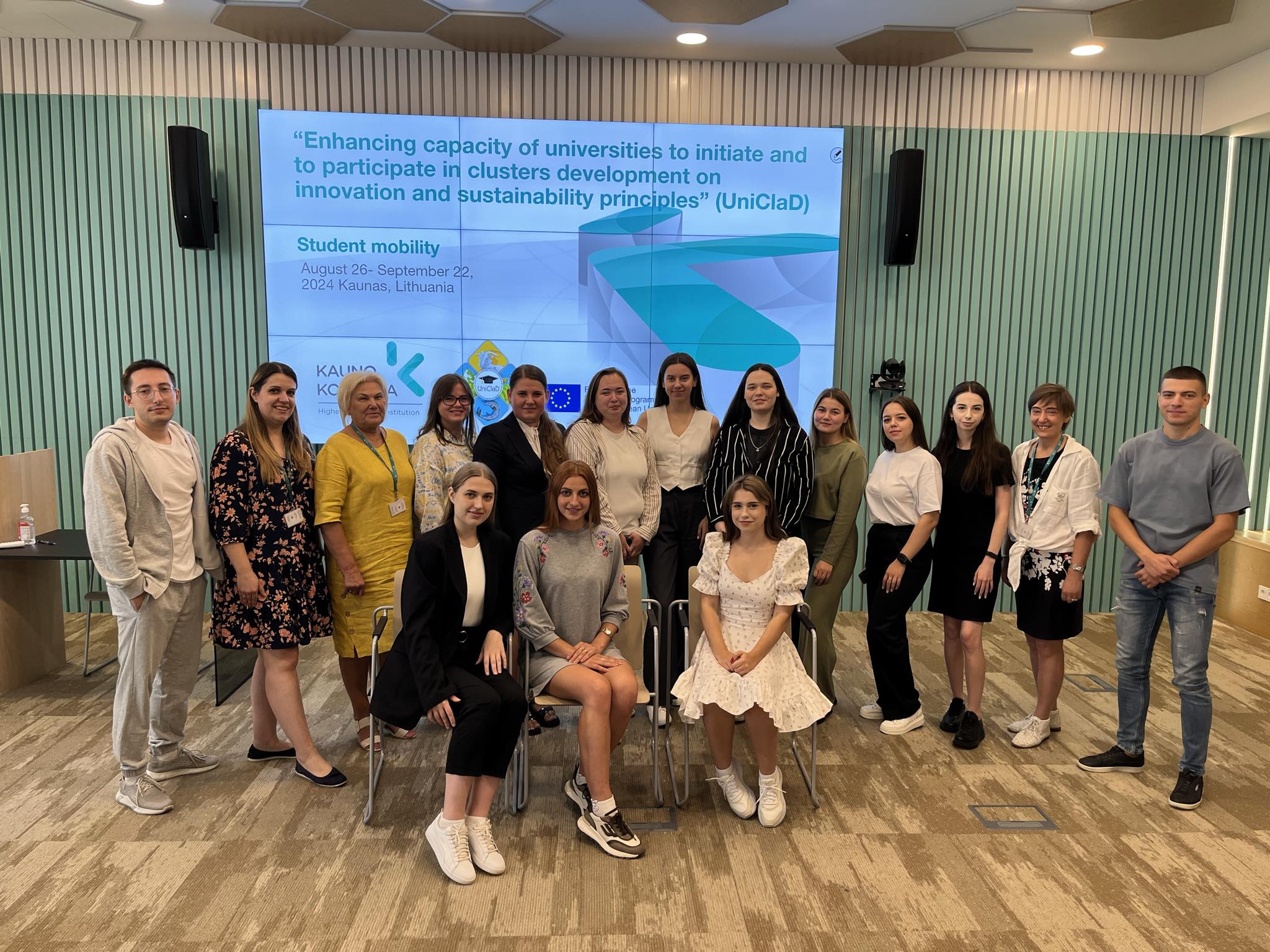
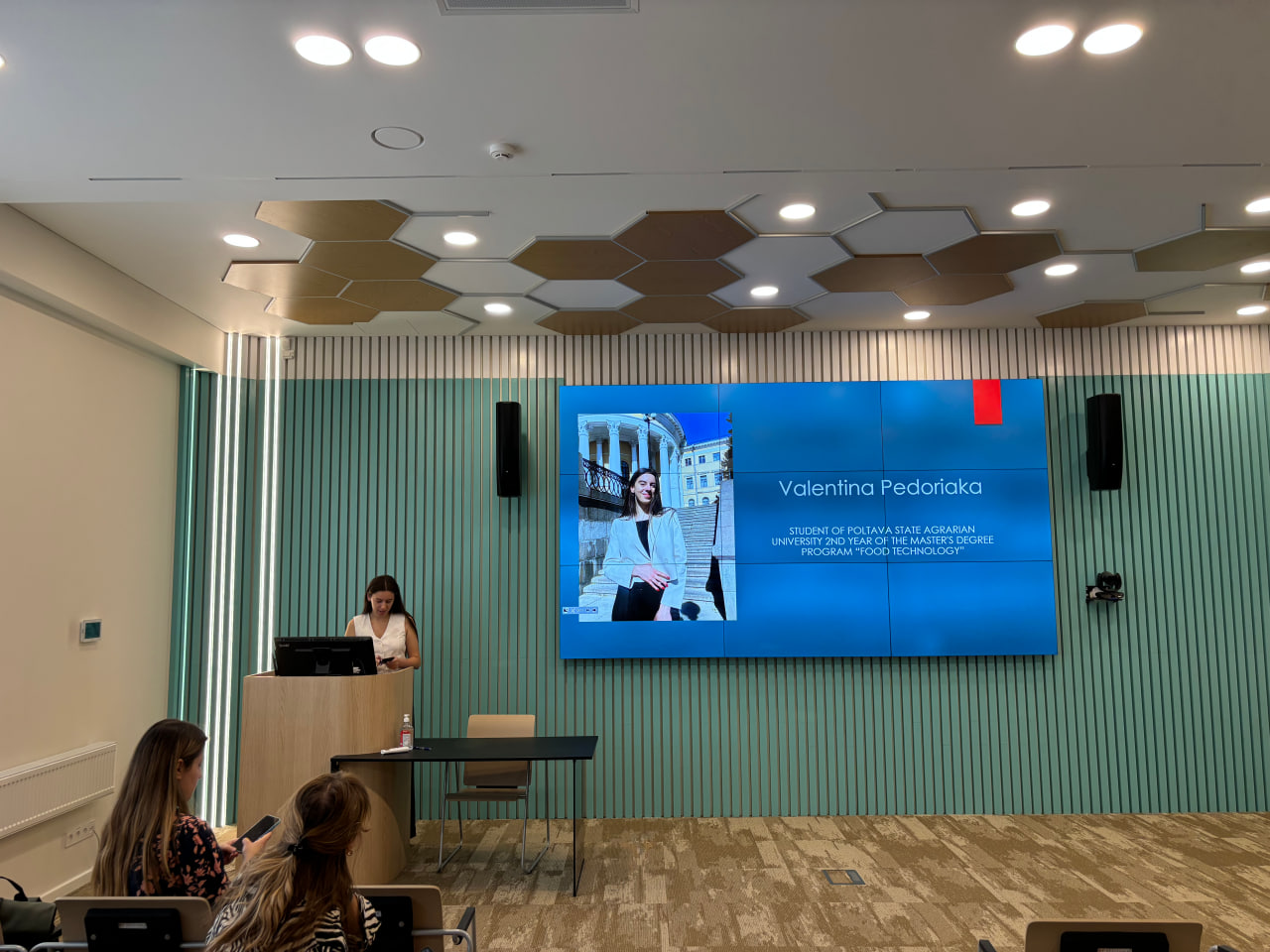
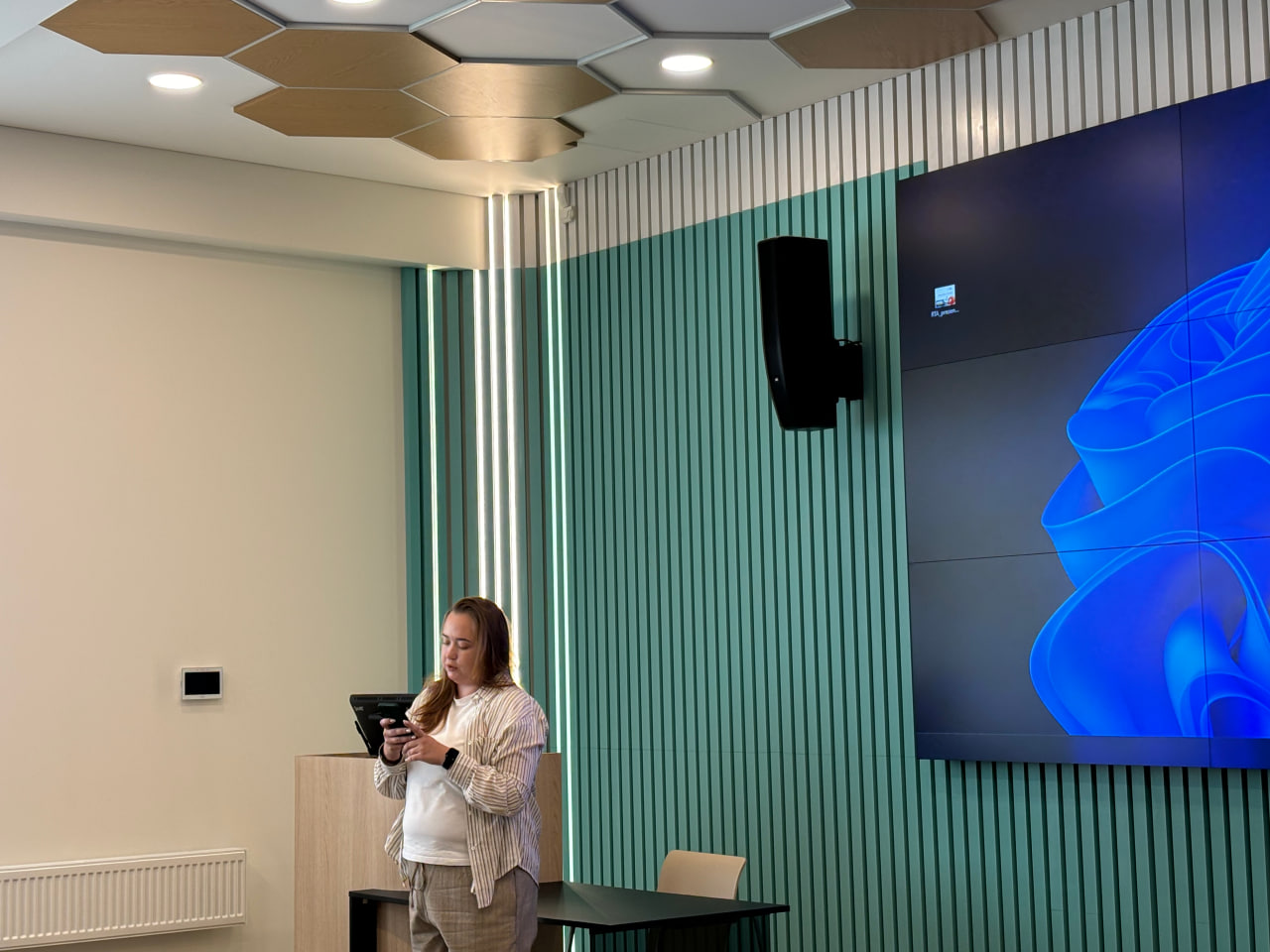
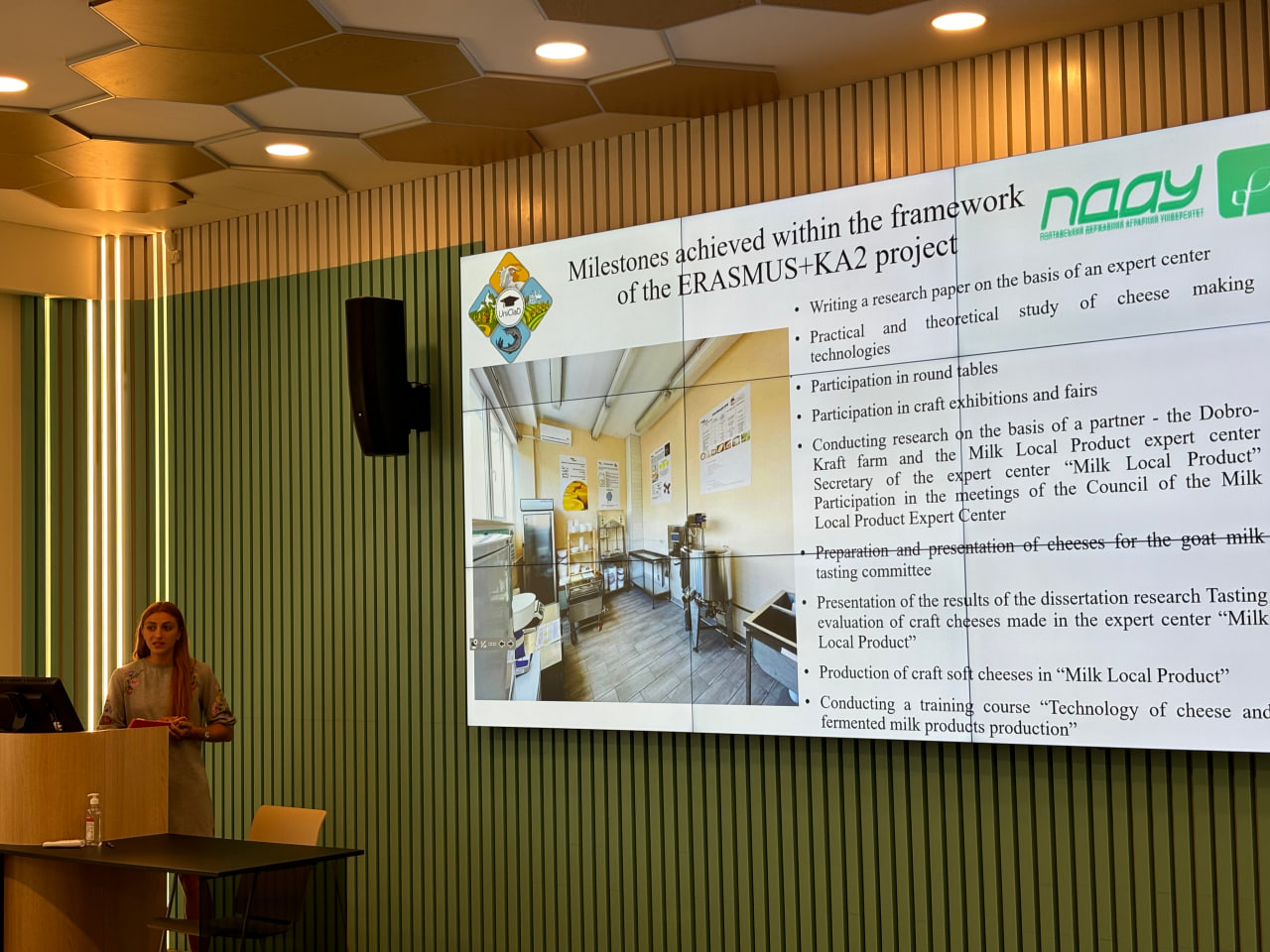
To strengthen the position, to strengthen the potential and competitiveness
The fourth cluster in the agricultural sector was created in Poltava region, the second - this year.
In the frame of the UniClaD project the "Milk Local Product" center was created and became the prerequisite for the creation of clusters in the Poltava region.
"Milk Local Product" united producers of fermented milk products and cheeses, crafters. The Department of Agro-Industrial Development of the Ukrainian Academy of Sciences and the Agrarian University became the partners of the cluster. They signed a memorandum of cooperation.
It envisages a set of measures aimed at the synergy of science, production and information exchange.
We are consolidating our efforts to find new opportunities, improve product quality, improve logistics, production processes, and strengthen our positions on the Ukrainian and international markets.
The creation of clusters opens up new prospects for producers and contributes to the economic development of the region.
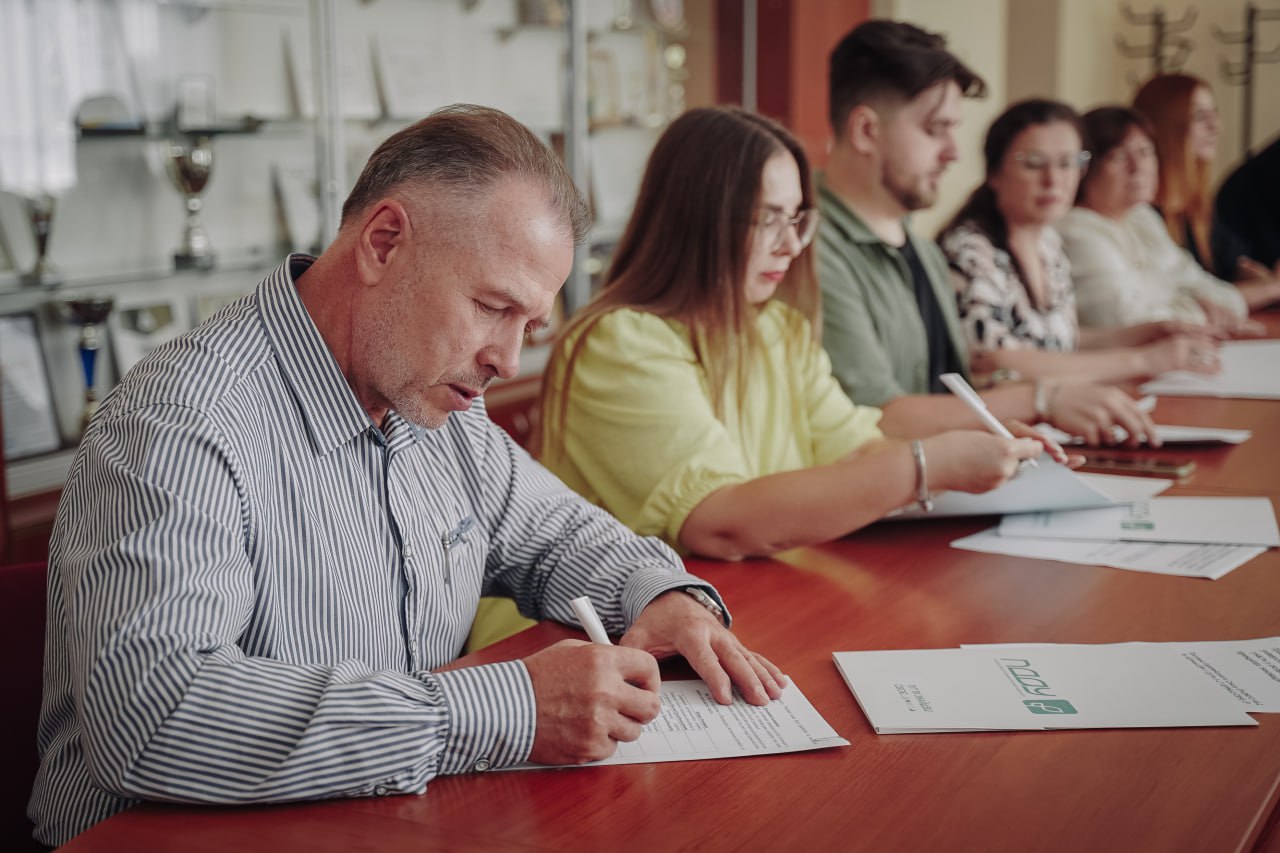
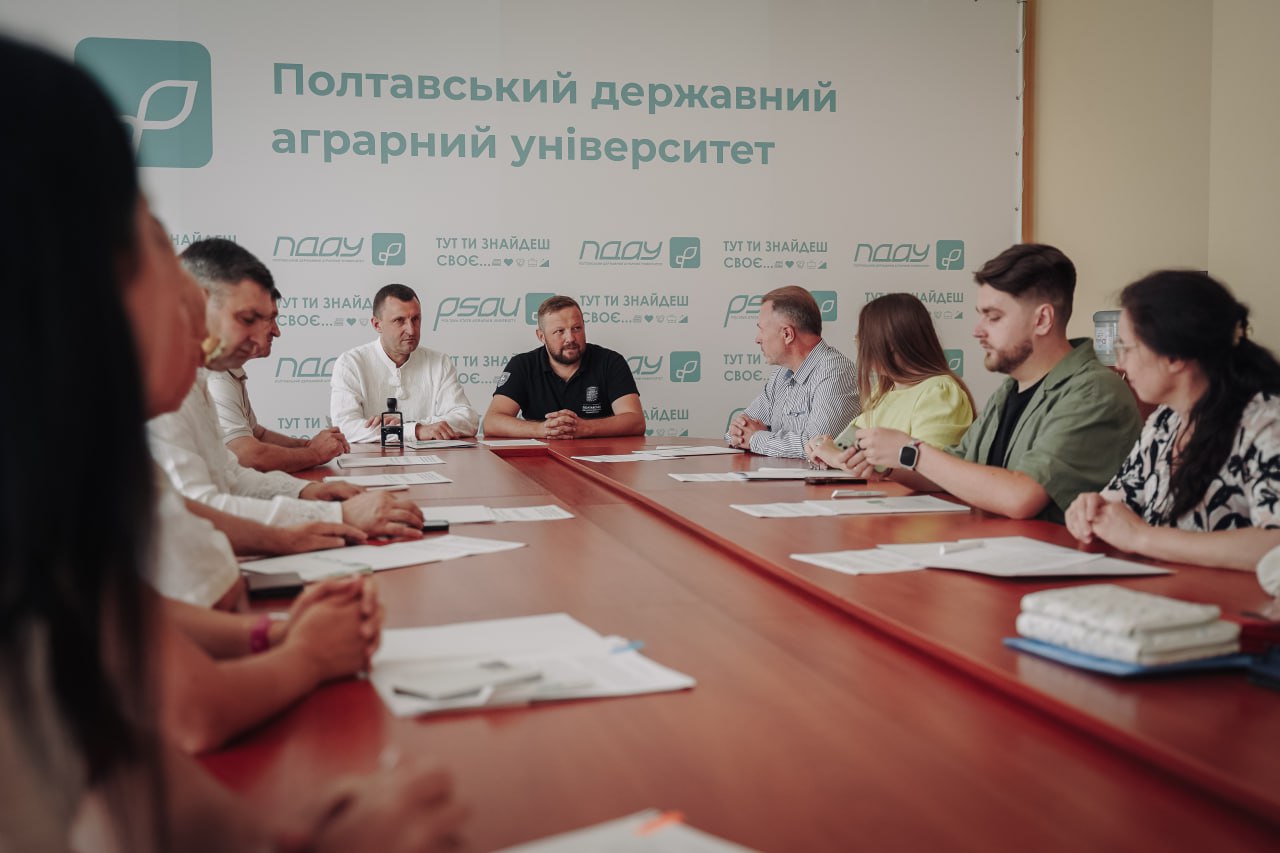
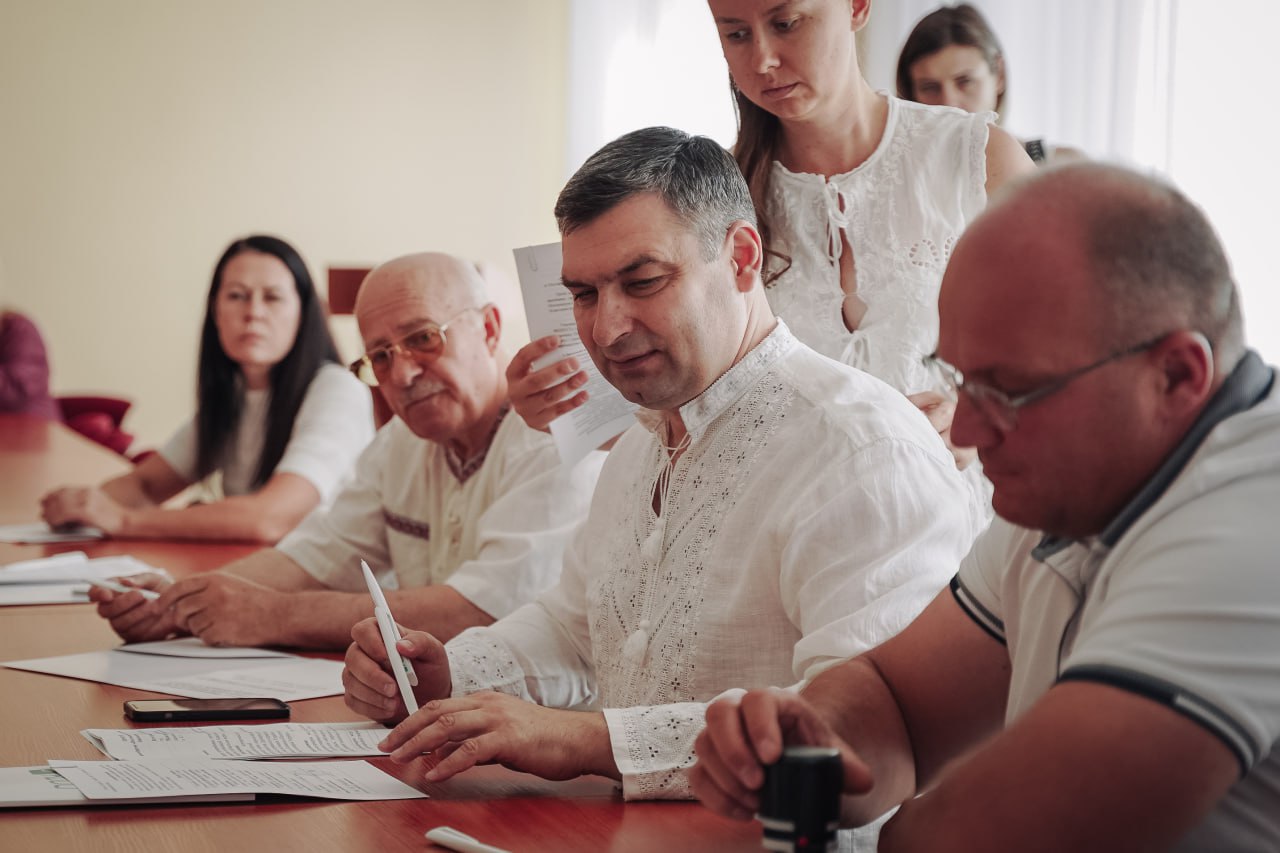
UniClaD - Erasmus+ Traineeship for Student mobility - Closing Ceremony and Certificates Award
From 23 June to 19 July 2024, CIHEAM Bari had the privilege of hosting eight Ukrainian students at the Cosimo Lacirignola Campus, as part of the student mobility scheme of the UniClaD Erasmus+ programme (CAPACITY BUILDING IN HIGHER EDUCATION (KA2). The students came from the Central Ukraine National Technical University (CUNTU).
Over 28 days, 20 researchers and experts from CIHEAM Bari led the group through individual work and learning activities, providing a comprehensive training experience that included lectures and instruction sessions, field trips, meetings with local stakeholders and international experts, and laboratory practicals.
While developing their research capacity and knowledge of the Italian and Apulian agrifood districts, the students were also actively involved in intercultural exchange and could attend seminars, workshops exchanging with international speakers and experts in the framework of ongoing research projects.
During the closing ceremony, Maurizio Raeli, Director of CIHEAM Bari, emphasised that “In line with the objectives set out in the UniClaD project proposal, around 60 undergraduate, MSc and PhD students from partner countries, including Azerbaijan, Moldova and Ukraine, are participating in a 28-day mobility scheme from April to September 2024 and are being hosted in various partner countries such as Austria, Hungary, Italy, Lithuania, Poland and Spain”.
UniClaD is a 3-year project (2021 - 2024), funded by the European Commission (approximately 1 million euros) under the Erasmus+ KA2 programme. Project leader Noureddin Driouech (senior researcher at CIHEAM Bari) outlined that UniClaD will work across competence centres (agro-industrial clusters) set up within HEIs. The clusters will ensure and strengthen connections with other organisations, encourage farms to develop innovations generated in HEIs, and promote collaborative activities based on mutual interest. This will be possible through administrative support, a legal framework and research activities that meet real needs. In particular, clusters will be created in the field of agriculture and agri-food processing with a focus on local products, biotechnology and poultry breeding, rural tourism, aquaculture and water management.
‘Enhancing capacity of universities to initiate and to participate in clusters development on innovation and sustainability principles (UniClaD)”
This project has been funded with support from the European Commission/ PROGRAM ERASMUS +, PROJECTKA2 N° 609944-EPP-1-2019-1-LT-EPPKA2-CBHE-JP
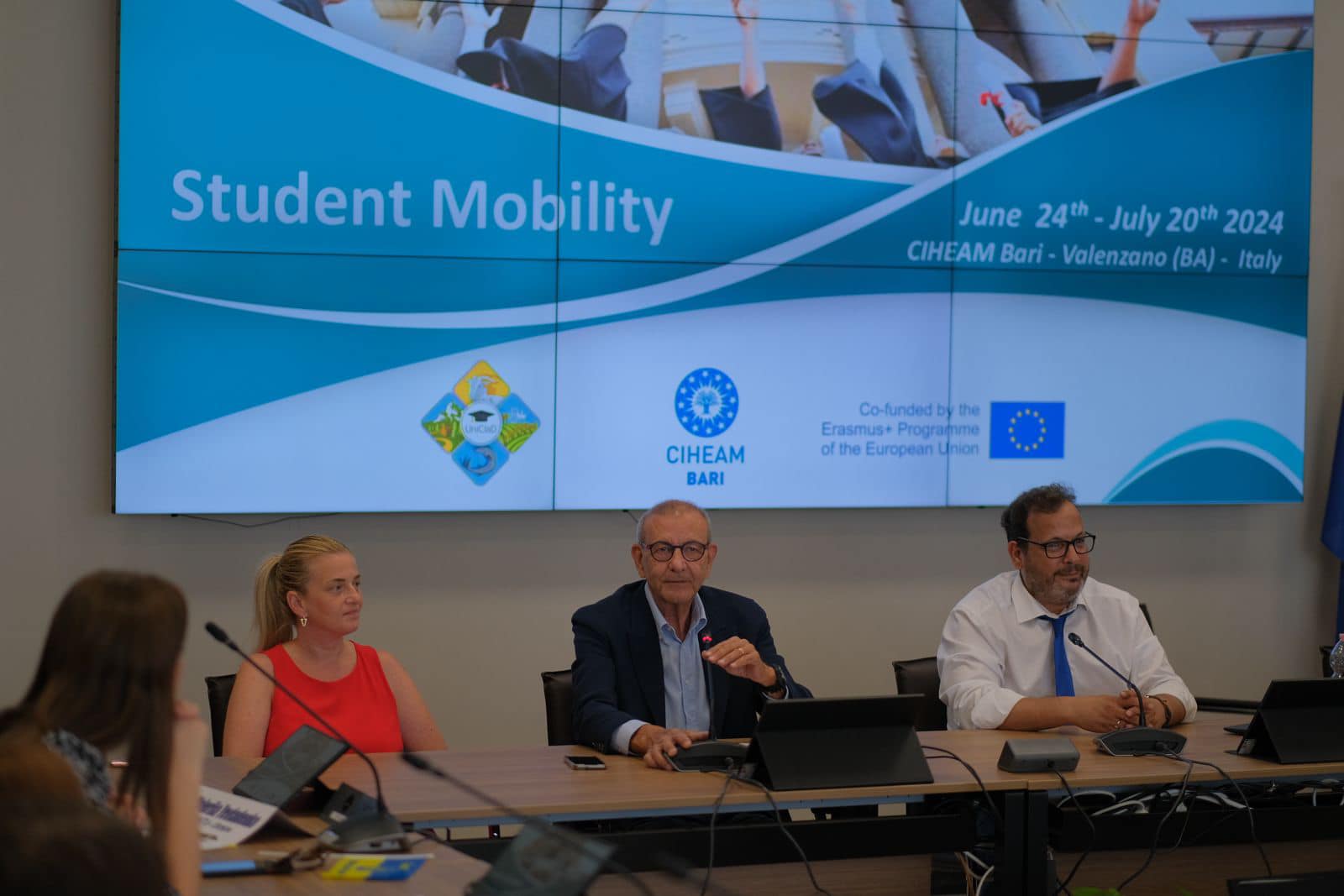
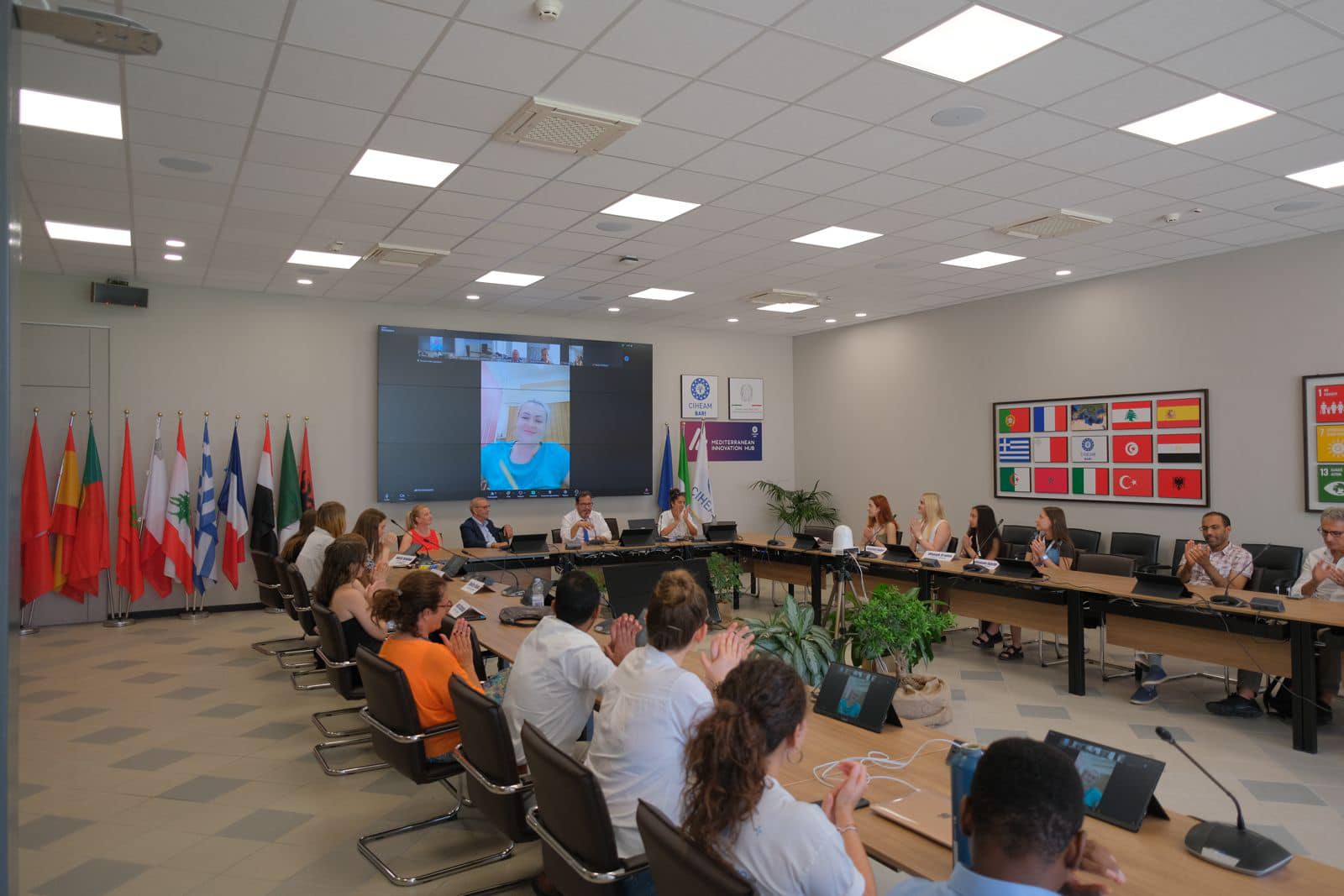
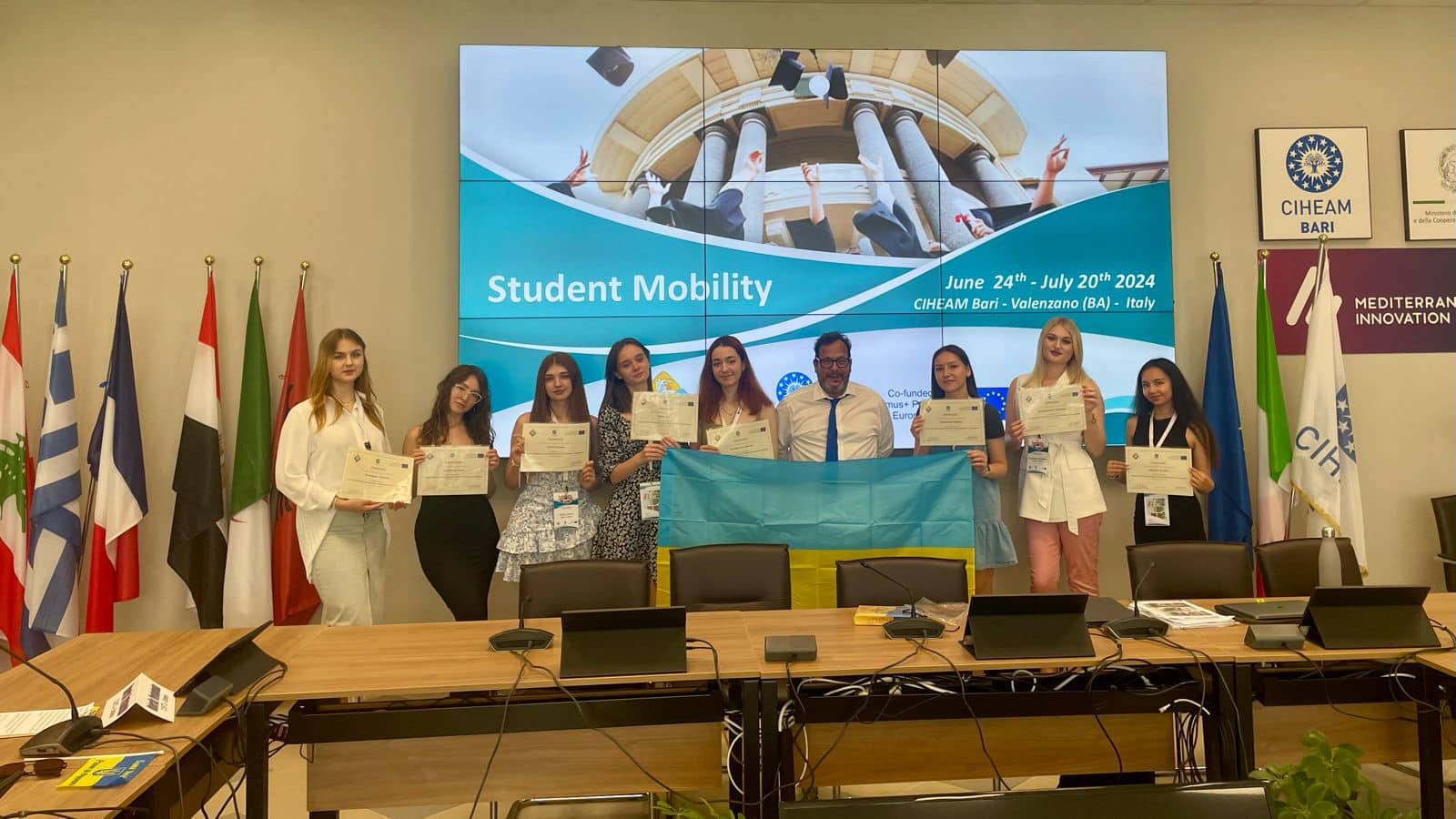
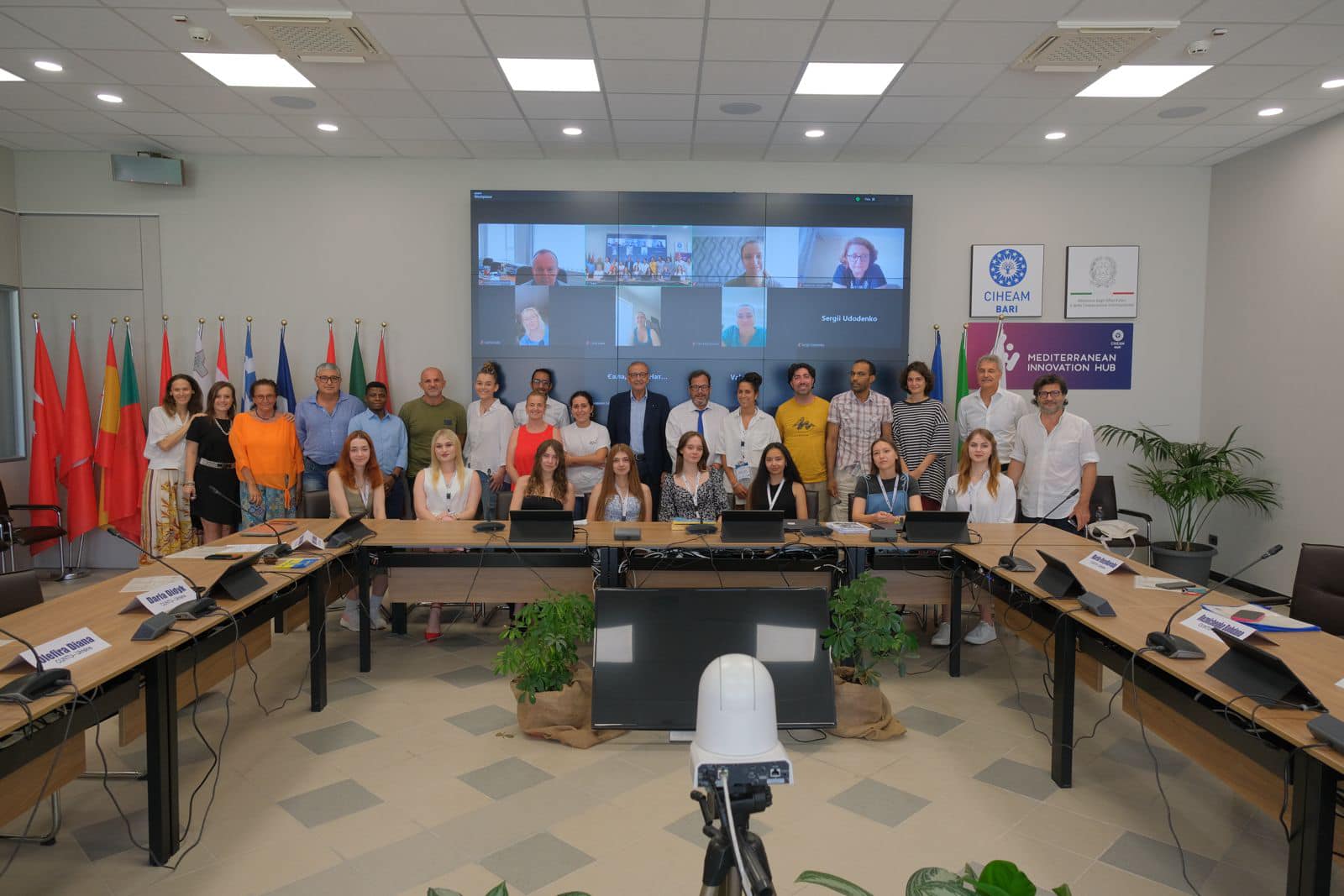
The International Field Day organised by project partners - ISA NAAS and CNTU
The International Field Day was held in June 2024 on the basis of the ISA NAAS where their partner Central Ukrainian National Technical University acted as co-organizers and active participants of the event.


The UniClaD project was presented at the the Field Days. Larisa Salo, the member of the working group of the UniClaD project, has presented to a wide audience of participants and heads of the regional military administration the possibilities of the Expert Center created as part of the project and the equipment of the laboratory, which was also equipped with the help of the project.


Participant from the partner institution ISA NAAS Vitaliy Ishchenko has presented a collection of barley. This is part of the pilot project, which, according to the Plan, the group members should do during the project.


Maria Vasylkovska, the participant of student mobility within the UniClaD project, is interested in science news at Field Day. She will take part in a trip to the Mediterranean Agronomic Institute of Bari (Italy)


The Interdisciplinary Center of Expertise for Agricultural Innovation and Entrepreneurship of BNAU is a platform for discussing challenges and overcoming them in fish farming
On May 17, 2024, the Interdisciplinary Center of Expertise for Agrarian Innovation and Entrepreneurship of BNAU became a platform for a scientific seminar, which brought together scientists, representatives of government agencies, educators, and representatives of fish production farms to discuss current challenges in the functioning of fisheries water bodies of Ukraine and to present scientific products for the industry by university scientists.
Viktor Ivanko, Head of the Department of the State Agency for the Development of Land Reclamation, Fisheries and Food Programs in Cherkasy Region, analyzed the current state and prospects of the Ukrainian fisheries industry, emphasizing a number of problems (mechanisms of access to aquatic bioresources, low investment attractiveness of the industry and competitiveness of domestic products, high level of fishing, etc.) At the same time, the speaker emphasized specific and effective ways to overcome difficulties in the fisheries sector, familiarized the audience with the main work plans of the State Agency for 2024 and the areas of research in which the industry is interested.
Leonid Geiko, Director of Skvyraplemrybhosp LLC, spoke at the seminar and discussed the peculiarities of “complex” lease of water fund land under martial law. The speaker emphasized the inconsistency of certain instruments for regulating the fisheries market in Ukraine and called on scientists to conduct a scientific review of economic regulators of the fisheries market together with business.
Natalia Prysiazhniuk, Ph. D., Associate Professor of the Department of Ichthyology and Zoology of BNAU, presented the results of long-term studies on the effect of probiotics and biogenic nanoselenium obtained by microbial synthesis on the morphometric and biochemical parameters of Nyvkivsky scaly carp, which were conducted within the framework of the international scientific project Erasmus +, KA2 “Enhancing capacity of universities to initiate and to participate in cluster development on innovation and sustainability principles” (UNICLAD). The research of BNAU specialists in aquatic bioresources and aquaculture is aimed at increasing the weight of carp yearlings in industrial conditions, obtaining fish of greater marketable weight, and increasing the survival rate of fish stock.
Vitalii Hryshko, Candidate of Agricultural Sciences, Associate Professor of the Department of Animal Hygiene and Fundamentals of Sanitation at BNAU, reported on the biotechnology of cultivation and prospects for the use of Chlorella vulgaris microalgae in fish farming.
At the end of the event, Iryna Lastovska, Candidate of Agricultural Sciences, Associate Professor, Dean of the Biological and Technological Faculty of BNAU, spoke about the achievements of the university's scientists and presented their scientific and technical products in the field of fish farming.
Olha Varchenko, Vice-Rector for Scientific and Innovative Activities of BNAU, Doctor of Economics, Professor, summarized the results of the Science Day, wishing the scientists achievements in the development of priority scientific areas, creation of new technologies, and successful integration of science and production.




Anar Hajiyev from AzTU presents Cluster model in industrial management at the Republican Scientific and Technical Conference
As part of the ERASMUS+ UniClaD project, Anar Hajiyev from AzTU presented the cluster concept at a scientific conference.
The IX Republican Scientific and Technical Conference of Students and Young Researchers on "Advanced Technologies and Innovations" was held in Baku at the Azerbaijan Technical University on 1-2 May.
Anar Hajiyev from AzTU gave a presentation on "Cluster model in industrial management. Steps in the formation of clusters in Azerbaijan'.



Students from Azerbaijan Technical University (Baku) take part in the UniClaD student mobility programme
As part of the ERASMUS+ UniClaD project, a meeting was held at the Azerbaijan Technical University (AzTU) with students who expressed a desire to participate in the student mobility offered by the project. According to the project plan, students from AzTU will go to the project partners from Austria, namely UCAEP/BAB, for one month. At this meeting, the AzTU project team informed the students about the project, its objectives, achievements and the whole concept of clusters. The best students were selected to participate in the student mobility, who will study in Austria for one month and learn from the European experience.


The Interdisciplinary Centre of Expertise of Agricultural Innovation and Entrepreneurship of Bila Tserkva National Agrarian University cooperates with local authorities
The Interdisciplinary Centre of Expertise of Agricultural Innovation and Entrepreneurship of Bila Tserkva National Agrarian University, established within the framework of the UniClaD project, took part in the final event of the project ‘Development of the Biogas Industry in Kyiv Region’ on 23 April 2024, which was held at the Ukrainian Chamber of Commerce and Industry.
The event was also co-organised by the Kyiv Regional Development Agency, the Department of Economics of the Kyiv Regional State Administration and the Department of Agricultural Development of the Kyiv Regional State Administration. As part of this project, the Interdisciplinary Centre of Expertise of Agrarian Innovation and Entrepreneurship of Bila Tserkva NAU conducted an expert study on the potential for biogas production in Kyiv region.
The biogas industry is a promising area that can increase Ukraine's energy independence, so the team of Bila Tserkva NAU, which, thanks to the UniClaD project, has created this Interdisciplinary Centre of Expertise of Agricultural Innovation and Entrepreneurship, is grateful for the opportunity to join this work and the opportunity to participate in information events in the field of alternative energy sources.
The speakers at the event were:
Anna Zamazeyeva, Head of the State Agency on Energy Efficiency and Energy Saving of Ukraine;
Viktor Bilko, Deputy Head of the State Agency on Energy Efficiency and Energy Saving of Ukraine;
Denys Motornyi, Technical Expert on Energy Efficiency and Renewable Energy at the Food and Agriculture Organisation of the United Nations (FAO) in Ukraine;
Oleg Yovzhenko, Head of Sales and Biogas/Biomethane Technologist at Pro-Energy;
Olesiy Savin, Director of Sustainable Development Department, Ukrgasbank;
Olga Varchenko, Doctor of Economics and Professor at Bila Tserkva National Agrarian University.
The experts told more about the general trends of the biogas industry in the world and in Ukraine, the state of biogas in Kyiv region, and the prospects for the development of this industry in the region.



Poltava State Agrarian University (PSAU) held a competitive selection of students to participate in the academic mobility programme as part of the UniClaD project
On March 15, 2024, Poltava State Agrarian University held a competitive selection of students to participate in the academic mobility programme within the framework of the project “Enhancing Capacity Of Universities To Initiate And To Participate In Clusters Development On Innovation And Sustainability Principles”(UniClaD). Students of the university showed not only interest but also great potential for active participation in international educational programmes.
Vice-Rector for Academic Affairs and Research Oleh Horb, Project Administrator Ilona Yasnolob, Head of the International Relations Department Yana Radionova, International Relations Specialist Olena Smirnova, and Secretary of the International Relations Department Eduard Kotsaga assessed the potential of future mobility participants. An important component of the selection criteria was democracy, transparency and openness.
This event was aimed at the successful implementation of the UniClaD project, achieving the goals of the Internationalisation Strategy of Poltava State Agrarian University until 2025, and strengthening international educational initiatives.



Together to the Victory!
Since the moment the russian federation treacherously attacked Ukraine the life of million of people has changed. The country and its western partners united their forces for the struggle against russian aggressor. Many activities carried out at peace time were suspended but many of them were adapted to the needs of the war conditions.
This war has greatly impacted the EU ERASMUS + project "Increasing the capacity of universities to initiate and participate in the development of cluster development on the principles of innovation and sustainability" (UniClaD), as one third of its consortium consists of the partners from Ukraine.
But our partners are trying to work, despite the difficult conditions.


In the framework of the project, Poltava State Agrarian University, which is a member of the consortium, obtained the mini-line for processing 120 liters of milk. It is destined to do research in the field of milk processing, to create new varieties of local cheeses and to provide practical and innovative training to students.
But since the beginning of the war in Ukraine, Poltava region has become one of many centers of volunteer movement and the provision of humanitarian aid to the most affected regions and temporarily displaced persons, especially from Kharkiv and Sumy regions. Everyday humanitarian aid is sent and displaced people find temporary shelter in dormitories, schools, private homes in Poltava.
Poltava state agrarian university actively participates in these activities providing food to displaced people, including dairy products. During last weeks, the equipment purchased under the UniClaD project was used by the project team for processing more than one ton of milk, which was supplied free of charge by the farms in Poltava region. The University specialists made almost 120 kg of soft cheese and 180 liters of yogurt, which were donated to the university canteen for refugees.
It is planned to continue to produce dairy products to meet the nutritional needs of people who have left their homes and need our help.

We are pleased to know that UniClaD project contributes to the safeguard of people and to the victory of Ukraine. We sincerely hope that after the war, the project team will come back to its usual activities, we will continue to realize our purposes and plans within the project!
Glory to Ukraine! Слава Україні!
International scientific and practical conference «Agriculture in the context of global challenges: strategic priorities and threats» in BNAU
On 6 October 2022, the International Scientific and Practical Conference ‘Agriculture in the Context of Global Challenges: Strategic Priorities and Threats’ was held at Bila Tserkva National Agricultural University within the framework of the UniCluD project.
The Rector, Professor O.A. Shust, addressed the participants with a welcoming speech, wishing them fruitful work and noting that holding specialised events is important for the development of economic education and science.
During two days, more than 50 representatives of higher education institutions, scientific and financial institutions, government agencies from Ukraine, Austria, and the Republic of Moldova presented their research offline and online. The conference participants also took part in a discussion of current agricultural issues and effective tools for the development of the agricultural sector.

